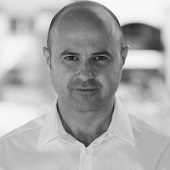The Conscientious (R)evolution
Rev. 2024-10-07
CONSCIENCE
The solution for a better world.
There's much confusion about conscience and even outright reluctance to speak openly about it. So as a conscience counselor, I had to come forward and explain what it really is and how to use it to create better people for a better world.
Definitions
A search for the word conscience in various dictionaries returns definitions that describe conscience as relative to culture and personal beliefs. This is a problem, because conscience isn’t relative but absolute. So I’ll skip dictionary definitions and address this point later.
Let’s look at etymology, which is more revealing:
- Conscience: from Latin com “with” + scire “to know.”
- Holistic, holism, whole: complete, healthy, undamaged.
So from the etymology of conscience, to which I added holistic, an underlying meaning emerges: a person with conscience is a complete person imbued with knowledge. That knowledge ought to be knowledge of self, others, and the world.
Conscience as holistic intelligence
From my informal research and clinical experience, conscience seems to be taught by good parents and activated by painful life experiences. In holistic terms, it stems from knowledge (Mind) and is pushed by emotion (Spirit). More specifically, it combines the knowledge of (not) creating harm, fueled by the empathy engendered from the experience of past suffering which transforms into care. This is holistic intelligence.
So in order to build conscience, we must have knowledge of the potential effects of our actions, and we must exercise enough care to conduct a thorough investigation of these effects beforehand.
“We didn’t know it’d be harmful,” they claimed. Unfortunately for them, that excuse is not valid. It may be true that they didn’t know, but it’s their responsibility to know. This is the excuse given today by providers of conventional medicine who injected millions—and still do. If we use the Conscience Formula™, we get a [ 0 0 0 ] rating for these people. See the conscience formula case study page.
The exercise of conscience
In order to build conscience, we must exercise it, just like a muscle. This includes mustering the internal courage and external will to act on what we know to be right. Sometimes, it means doing uncomfortable things like intervening against those who act wrongly, whether it affects us or not.
We don’t stop people from doing wrong only because they hurts us personally. We stop them because their actions are wrong and stopping them is the right thing to do. It is the difference between the application of conscience in a relative context versus an absolute context—think universal. Only the application of conscience in the absolute context will change the world. The relative context is what we have today.
“The abuser kept abusing because the abused did not complain,” we hear sometimes. But it’s the responsibility of the (honest) abuser to know whether there is abuse taking place and/or a violation of one’s natural rights. So we have to be mindful of the welfare of others while performing any action and their potential inability to defend themselves.
This means that conscience cannot be applied relative to personal feedback or circumstances. It doesn’t matter if the abused requested the abuse. Abuse is a degradation of value and is therefore wrong. It doesn’t matter if local laws, cultures or religions allow it, it is wrong universally. And it is our responsibility to say no!
This is why I could not list the dictionary definitions. On the other hand, re-reading the etymology of holistic and understanding the meaning of the words complete, healthy, undamaged, I’d like to conclude by stating that an individual without conscience or holistic intelligence is an incomplete, unhealthy and damaged individual.
Food for thought
I make a point to talk to people on the street about this topic. I ask them: “Would you like to be a better person?” I know it may be a bit unsettling, but I do it on purpose for the priceless answer I regularly get: “Oh no, thank you!” Do you see the irony? It makes me laugh every time.
If someone approached me about conscience, I would be eager to know more. Conscience after all refers to a desire to be good and do good in the world. Yet, when I mention that word to random people, they recoil. No matter the reasons behind their reaction, I ask myself: why, would you not want to be a better person? This is an important question with many actionable implications. For example, do you want to transact with someone like that, trust them to be your doctor, or God forbid, have a relationship with them?
I invite you to learn the Conscience Formula™ to gain a new perspective on these important matters and to participate in the Conscientious (R)evolution.
- Getting started with the Conscience Formula™...
- Conscience and dating. Join the discussion on Reddit...
Related links:
